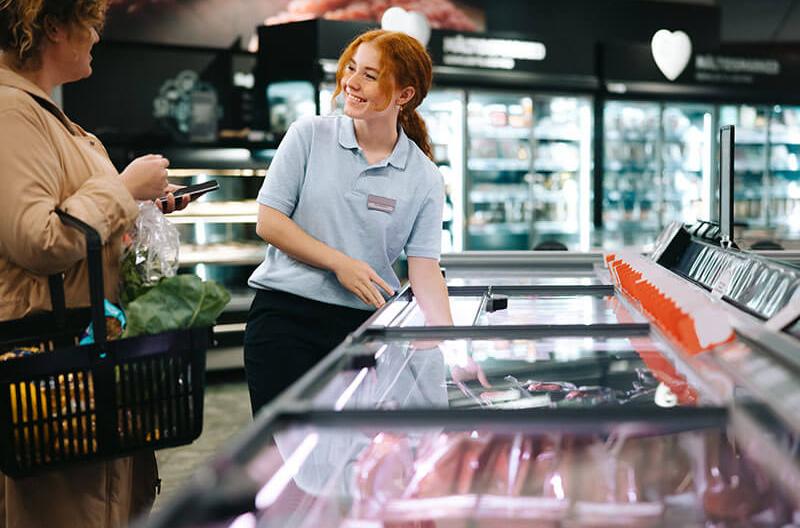by Jim Dudlicek / NGA Director, Communications and External Affairs
“Every experience makes you grow.” – Anonymous
That’s applicable for independent grocers on multiple levels. The experience you deliver in your stores can be the difference between a one-time shopper and a lifetime customer. That experience can help you grow as a business, and it can help consumers grow in their knowledge of food, their embracing of your brand promise and their appreciation for the stories that you and your vendors have to tell.
So, it should go without saying that experience is important. But it’s good to be reminded now and then.
Some of the latest cold water to be tossed into retailers’ faces comes from Dallas-based workforce empowerment consultant Theatro, whose recent retail customer experience survey reveals that more than 40 percent of Americans say shopping at physical stores is “less enjoyable” than before the start of the pandemic, with most placing the blame on inadequate or poorly trained staff.
Theatro contends this response indicates that retailers are still struggling with the chronic staffing issues that have plagued most retailers since emerging from the pandemic. But the results also suggest that customer expectations for speed, convenience and quick responses to questions have increased as a result of the uptick in e-commerce during the pandemic.
“Consumers prefer physical retail for a lot of reasons, such as the ability to see and feel products before buying them and the immediate gratification of taking a product home. But they’ve also become more accustomed to the advantages of e-commerce, such as avoiding long lines and having an almost infinite amount of product information at their fingertips. This makes them more impatient with the in-store experience,” said Theatro CEO Chris Todd. “The survey suggests that retailers must respond to these heightened expectations or suffer the consequences of decreased shopper satisfaction and, ultimately, sales.”
Most significant for grocers: Among retail categories, shoppers surveyed said they were most likely to have an unenjoyable experience at supermarkets (38 percent), followed by department stores (34 percent) and convenience stores (30 percent).
Other key findings:
- Fully 60 percent of those reporting less enjoyable experiences said that more retail stores had inadequate staffing levels than in 2019.
- A greater percentage (64 percent) said that more stores have “poorly trained or prepared staff” than in 2019.
- Aspects of shopping that consumers disliked most: long lines and crowds (71 percent), high prices (39 percent) and limited product availability (32 percent).
- Nearly a third of respondents (29 percent) cited “difficult or rude staff” and nearly a quarter (24 percent) complained of “unknowledgeable or unhelpful staff.”
- When asked if they’ve stopped shopping at a specific retailer because its employees were unknowledgeable or unhelpful, half of respondents said yes.
As grocers continue to contend with lingering effects of the pandemic like staffing and product shortages, it’s more important than ever to make sure your associates are well trained and up to speed on store offerings. While hiring may still be an issue, it’s vital to make sure your customers feel like you care about them, that they feel welcome and that you’re equipped to offer them solutions for their daily needs.
So many of you have invested significant time and resources into your stores, ramping up services, offerings, décor, flavors, sights and smells. Make sure your team is equipped to administer those enhancements.
Courtesy, know-how and a cheery “How may I help you?” cost little to nothing. Rudeness, ignorance and apathy can cost you your business.
The competition for consumers’ food dollars is too intense for you not to make every effort to embrace your customers. There’s a reason so many of you have become institutions in your communities. Don’t ever take that for granted.

